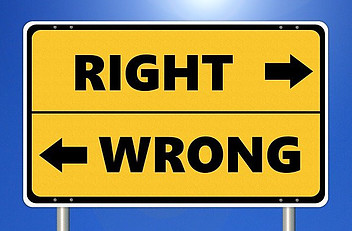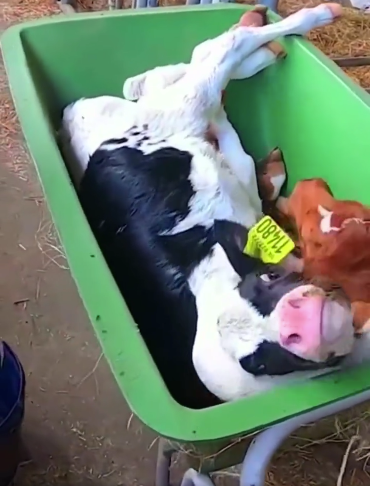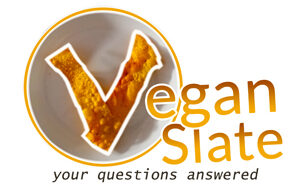Let’s get straight to the answer here … no fluff 🙂
Vegans and vegetarians make their lifestyle choice based on ethical concerns for the welfare and the rights of animals. Plant-based is just a diet. There’s no morality involved apart from maybe wanting to do the right thing for the environment.
Everyone talks about the ‘vegan diet’ but you may be surprised to learn that veganism is not a diet. It is a position adopted whereby one tries to minimise the harm done to animals, especially our ‘food animals’.
- So vegans avoid all animal products as much as possible. We don’t eat meat or dairy and we buy cruelty free products as well as avoiding leather.
- Vegetarianism comes from a similar moral place as veganism but vegetarians continue to consume dairy products and eggs while eliminating all meat from their diet.
- Plant-based is a much looser term which is wholly concerned with diet and does allow for minimal consumption of animal products.
Watch: Plant-based physician, Dr Laurie Marbas with a quick 6 minute explanation of the differences between vegan, veggie and plant-based ...
What Do You Lot Eat Then? Lettuce?
In the rest of this article we shall explore the fundamental differences between veganism, vegetarianism and plant-based lifestyles.
From the welfare and rights of our furry friends to the environment to health concerns, animal-based foods are coming under increasing scrutiny across many sectors.
But as awareness increases around what we put into our mouths every day, the distinctions between vegan, vegetarian and plant-based are tending to become less defined.
A Blurring of The Boundaries
It’s very easy for me to forget that 95% of the world is not vegan!
In my little utopian bubble I have to remind myself that most people have not the foggiest what veganism is, although surely you’ve been living under a rock not to have heard of it by now.
The words ‘vegan‘ and ‘plant-based‘ are often used interchangeably these days and you could be excused for being confused around definitions.
Just yesterday my darling wife showed me a Facebook video where the woman was explaining how, as a vegan, she was ok to eat organic chicken because it was fed a vegan diet!
Even the vegans are confused 🙂
Understanding The Differences Between Vegan, Vegetarian and Plant-Based Lifestyles
So first up, let’s look at some definitions here.
 The Definition of Veganism
The Definition of Veganism
You can read the Vegan Society’s definition of veganism here but to paraphrase …
‘Veganism is a philosophy which rejects all forms of animal exploitation and cruelty. Vegans try to avoid, as much as possible, all products derived wholly or partly from animals.‘
This means we don’t eat any meat or dairy products. Eggs and honey are also off the menu. Leather products and any cosmetics tested on animals are avoided, in an ideal world.
Our busy lives make it almost impossible to be 100% vegan because animal exploitation is so embedded in our supply chains.
But the whole point of veganism is just to do the best you can because it’s better than doing nothing!
The Definition of Vegetarianism
This is nowhere near as clear-cut as veganism because there are many different types of vegetarian.
Maybe this is why there doesn’t seem to be any official definition of vegetarianism. The Wikipedia entry is pretty much spot on though. So let’s paraphrase again …
‘Vegetarianism involves eliminating from the diet the flesh of any other animal but dairy products, eggs and honey are permitted’
Vegetarians make their lifestyle choice primarily based on an ethical position to minimise the harm done to animals.
So, I know what you’re thinking … “the same as vegans then?”
Well … yes.
… and this is why many vegans get a little annoyed with vegetarians for not making the link between dairy products and animal cruelty.
I was vegetarian for 20 years before taking the final, logical step into veganism. But it took me forever to make the connection!
The sad thing is, it could easily be argued that the dairy industry is more cruel than the meat industry not least because it feeds into the meat industry.
But that’s probably another article.
The Definition of a Plant-Based Diet
And finally, to the loosest of all definitions … the plant-based diet.
Again, there is no real official definition and different people interpret the diet in different ways. But unlike vegetarianism and veganism, it is wholly concerned with diet. Animal rights issues do not figure.
Having said that, the term is also now used to describe animal-free textiles and fabrics used in shoes and clothing. The marketing bods have cottoned on.
So here’s Vegan Slate’s very own definition of a plant-based diet:
‘A plant-based diet consists primarily of minimally processed fruits and vegetables along with seeds, nuts, pulses, legumes and whole grains with small amounts of animal products sometimes consumed, depending on how strict the individual is’
Purists would probably disagree with the animal products part and a 100% plant-based (paid link) diet would indeed eliminate all animal products.
But I’ve seen plenty of examples of people who are following a plant-based diet and also eating eggs and/or dairy along with a smaller group who have no problem eating a dead pig sandwich every so often!
Maybe a more accurate term for the latter groups would be a ‘plant-forward diet’.
(To help with running costs, Vegan Slate is a member of the Amazon Associates Program and as an Amazon Associate, earns from qualifying purchases. There’s no extra cost to you if you use a paid link and it’s a great way to support us. Thank you!)
It’s a Question of Ethics
You’ve no doubt heard of the term ‘virtue signaling‘ … it’s something vegans get accused of regularly. Vegetarians, not so much … being more socially accepted.
 The term is often used by those who feel threatened by what veganism represents. It makes them feel better by moving the focus away from themselves and their own ethical code.
The term is often used by those who feel threatened by what veganism represents. It makes them feel better by moving the focus away from themselves and their own ethical code.
“Stop telling me what to eat” is a common response … “it’s my own personal choice“.
… and that’s true but vegans and vegetarians object to the outcome of that personal choice as it relates to the rights of animals … I’m pretty sure most animals don’t want to die.
We do not accept that someone has the right to take the life of another sentient Earthling just so they can eat a burger.
The exception would be matters of survival. If eating meat is the only way to avoid starvation then, of course, humans will eat meat.
But in our modern world of integrated supply chains and nutritional supplementation, those of us living in developed nations don’t need to eat meat to survive … ‘food deserts’ notwithstanding.
In fact it’s becoming ever more clear that humans thrive without meat and dairy, if fresh fruit and vegetables are the mainstay of the diet.
The point I’m trying to make is ‘virtue signaling’ simply doesn’t come into it for vegans and vegetarians because we have a selfless belief that every single living thing on this planet has a right to life.
Granted there is a small group of vocal vegans who might be perceived to be ‘telling you what to eat‘ but the vast majority of those in our movement are just quietly getting on with it. Not trying to signal anything to anyone else.
Simply, it’s not about you … it’s about the animals.
Similarities of These 3 Lifestyle Choices
So I hope we’ve successfully explained the differences between veganism, vegetarianism and plant-based lifestyles but what makes them similar?
Well, obviously, plants figure highly in all three with vegans choosing to eat only plants. There is more leeway with the other two.
Due to this plant-forward approach, those adopting any of these lifestyles are likely to experience improvements in general health.
The evidence is now overwhelming that 100% plant-based (ie: vegan) conveys the greatest health benefits. From heart health to reversing type 2 diabetes and even improving the outcomes of cancer patients.
The data is impossible to ignore.
But even relatively small reductions in your meat consumption can translate to significantly better overall health.
… and we haven’t even mentioned the environmental benefits of a plant-forward diet.
In Conclusion
Let’s try to summarise then with a few brief bullet points …
- Vegans eat a 100% plant-based diet due to the ethical concerns around animal welfare.
- Vegetarians eat plant-based as well as eggs and dairy products.
- Plant-based is similar to vegetarian but allows for minimal meat consumption depending on individual interpretation.

I shall leave you with a few stats …
- The human race slaughters 90 billion+ domesticated land animals every year for food.
- That is equivalent to the Nazi holocaust happening 22 times every day.
- Many animals are still conscious when their throats are cut.
- Male calves are considered expendable by the dairy industry with many shot in the head at birth.
- Animal agriculture is one of the leading causes of climate change.
- I could go on!
When vegans explain their lifestyle choice is for ethical reasons, you can see from the above stats that the reasons are pretty compelling … and there’s many more reasons.
The human race is engaged in a process where we see the level of violence directed towards our fellow inhabitants of this pale blue dot almost entirely hidden from the masses.
Ignorance really is bliss, it seems … but many people don’t even care.
I believe we have to start caring if we’re to evolve beyond this extremely violent episode of human history.
Is it your turn to evolve into veganism?
Thanks so much for reading,
Rohan 🙂
 Rohan McAvee is just another vegan blogger trying to navigate the sometimes choppy waters of veganism and plant-based living. Based in the UK, for more than a decade he has been walking the vegan walk, trying to do the right thing for the animals. He’s never really wavered or been tempted to stray from the path and now feels he’s at the point where he can offer advice to new vegans and those considering making the switch. Vegan and loving it!
Rohan McAvee is just another vegan blogger trying to navigate the sometimes choppy waters of veganism and plant-based living. Based in the UK, for more than a decade he has been walking the vegan walk, trying to do the right thing for the animals. He’s never really wavered or been tempted to stray from the path and now feels he’s at the point where he can offer advice to new vegans and those considering making the switch. Vegan and loving it!
